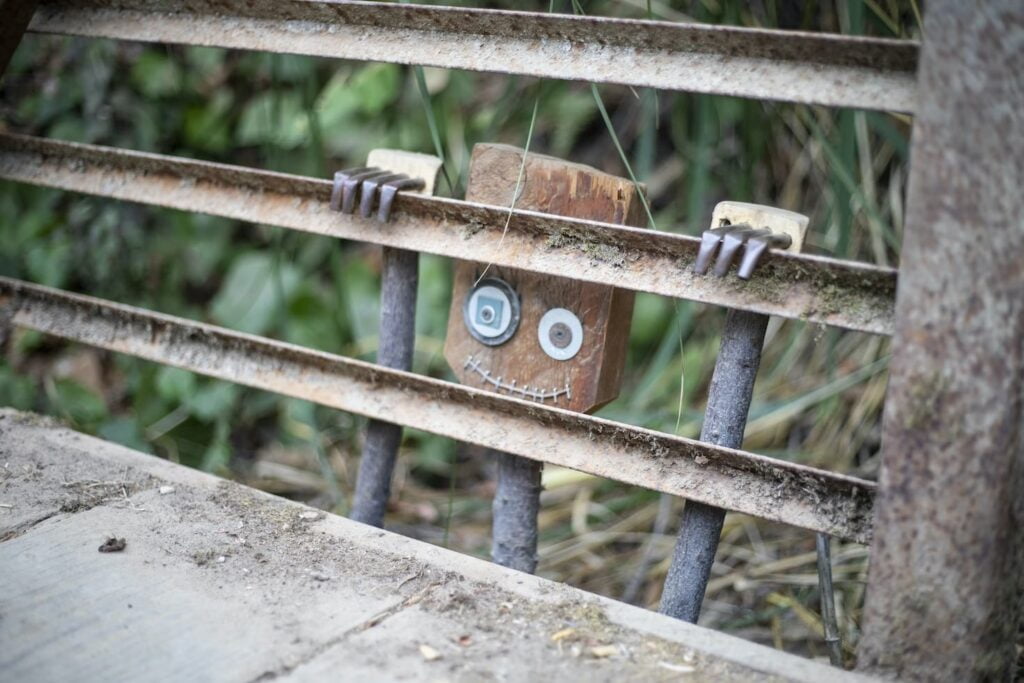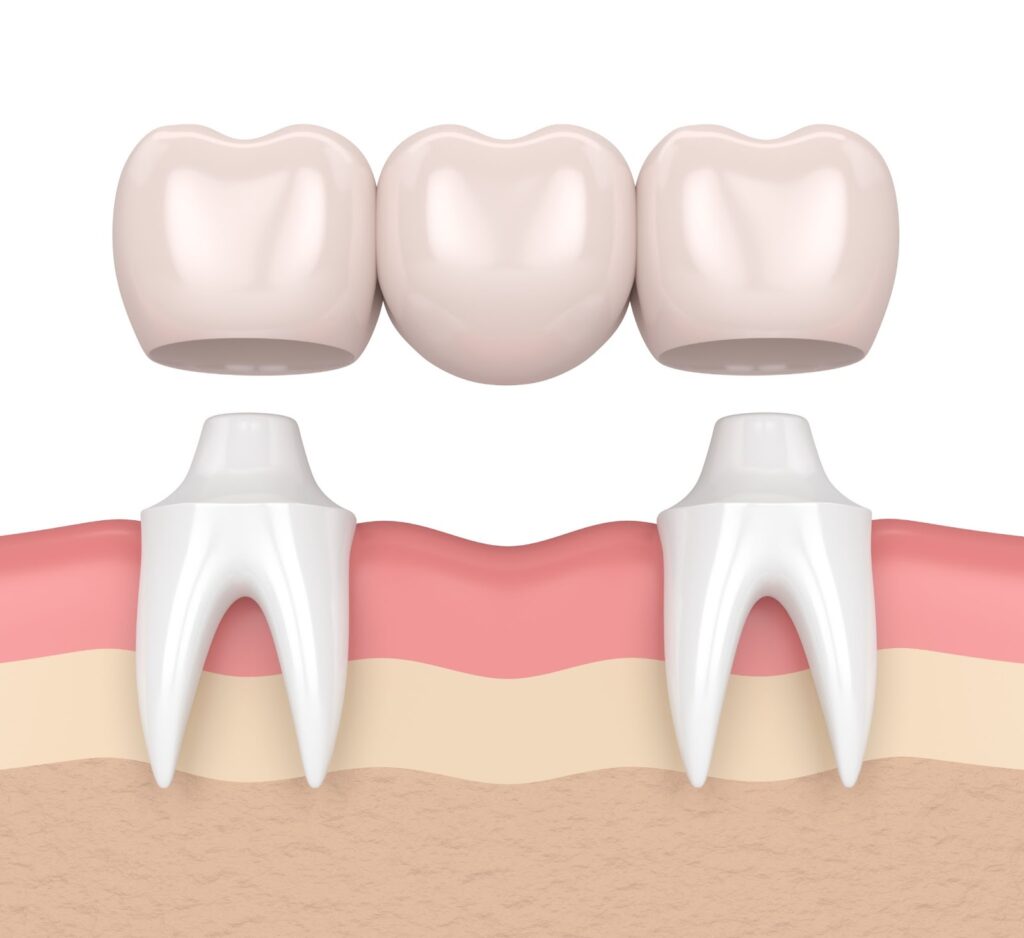Before we get started, please note this is not an article for trolls. Whether you live under a bridge or in a mansion, your dental routine should have the same effect (although, admittedly, living under a bridge would rob you of the resources you’d need to carry out the routine optimally). When we say ‘under a bridge’, we mean ‘beneath a dental bridge’. We’re speaking specifically about the teeth beneath your dental bridge and how they’re hard to reach—and, ergo, more susceptible to dental decay.

Now that we’ve cleared that up, let’s build a bridge and move on to the topic at hand. Here’s how you can avoid decay and infection under a dental bridge.
Dental bridge problems
Great as dental bridges are, one major issue is that natural teeth beneath them can become vulnerable to cavities or infection. And it doesn’t take long before simple dental issues can progress to oral infections.
If either of the natural teeth beneath the bridge contains one or more cavities, one of two things will happen:
- The dentist will detect the cavity or cavities early in the piece and resolve it with a filling
- The cavity won’t become evident until later and will require treatment—meaning the dentist will have to remove the bridge. (Unfortunately, this—or any sort of dental bridge infection treatment—will necessitate replacement.)
Tooth decay under bridge symptoms
Tooth decay under a dental bridge may be less obvious than tooth decay on the average tooth. Nevertheless, there are symptoms. Here’s what to look out for:
- Bad breath: It can be difficult to clean the gums surrounding dental bridges, and this can lead to tooth decay—which often manifests as bad breath.
- Hypersensitive teeth: Bacterial toxins can break down a tooth’s exterior, hence exposing the nerve-rich dentin. You’ll feel this as a shocking sensation when eating or drinking. (If the infection progresses too severely, you may need a root canal under a dental bridge. Click here to learn more about root canal treatment in Townsville.)
- Loose bridges: The teeth beneath the bridge are holding everything up. So if your bridge is loose, that’s a sign that its supports are decaying.

How to avoid teeth decay under a bridge?
The advice for avoiding teeth decay under a bridge isn’t too different from standard preventative dental advice. The critical takeaway is that, due to its positioning, your bride (and its surrounding area) will need a little extra TLC. Here are our top tips:
- Maintain a thorough dental routine: Brush twice daily for two minutes per session and floss at least once per day (optional: rinse with fluoride mouthwash). This should keep the gums surrounding your bridge clean. To remove built-up plaque from beneath your bridge, use an oral irrigator or floss threaders.
- If necessary, wear a nightguard: If you suffer from bruxism or similar, wearing a custom nightguard can help shield your bridge from damage.
- Choose your chews with care: Bridges aren’t cheap to replace, so it pays to adopt mindful chewing. For starters, don’t chew hard candy or ice. For another thing, reserve particularly crunchy chews—i.e. nuts or seeds—for the side of the mouth without the bridge.
- Visit the dentist every six months: Everyone should do this, whether they have a bridge or not. Catch any issues early enough and it could save you a very expensive bridge replacement.
Ready for your bridge?Now you know how to avoid tooth decay under a bridge, why not visit your favourite Townsville dentist? At Deeragun Dental, we have dental treatments and artificial teeth to fix your smile. If you’re seeking dental bridges in Townsville, call Deeragun Dental on (07) 4751 5999 OR book an appointment online. At Deeragun Dental, we’ll help you find the smile solution you need.
